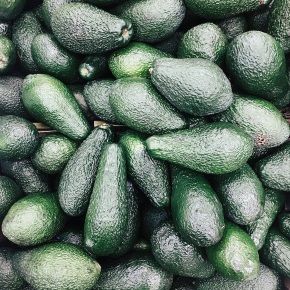Many suffer with the symptoms of Hay Fever, year on year. The potentially misleading name represents an allergy to pollen, rather than hay. If you’re up to date with the news, you’ll be aware of the shortage in Hay Fever medication as high street stores are struggling to keep up with the demand. This has recently been reported by BBC News.
If you’re looking for an alternative to your usual medication read on in this week’s Nutrition News...
Hay Fever is more complex than you think
Previous studies have explored the hypothesis that an allergy to pollen can cause mental health conditions. In response to this, Bristol Medical School (BMS) led a study to look further into these claims, reported by Science Daily. BMS used a large sample size to try to identify how Hay Fever related to the presence of mental health conditions. The conditions they were mainly looking at included anxiety, depression, bipolar and schizophrenia.
In short, BMS found “Little evidence of a causal relationship between the onset of allergic disease and mental health[…]”
However, these findings do not minimise how severe the symptoms of Hay Fever can get. The NHS UK website list the following symptoms of Hay Fever:
• Sneezing or coughing
• Runny or blocked nose
• Itchy, red or watery eyes
• Itchy throat, mouth and ears
• Loss of smell
• Pain surrounding temples and forehead
• Headache
• Earache
• Fatigue
Those with Asthma may experience:
• Tightness in the chest
• Shortness of breath
• Wheezy cough
These symptoms can last a number of months
How to support your pollen allergy
Although Hay Fever is incurable there are ways that you can reduce the symptoms. Anti-inflammatory products give nutritional support to the body so that it can better fight off the symptoms that often occur with Hay Fever, including red eyes, itching, an inflamed nose and headaches. When this happens, the body releases Histamine.
Some studies claim that Hesperidin suppresses the histamine release during some allergic reactions. A study reported by the National Library of Medicine looked at the effects of allergies in a group of 30 adult Sprague-Dawley rats when they were exposed to Hesperidin and not. The results found that Hesperidin was, in fact effective in suppressing allergic symptoms.
Finally, Krill Oil can protect the cell walls from the damage that can be caused by inflammatory chemicals. The body does not manufacture Omega 3 fatty acids, so they need to be obtained from your diet. Krill Oil supports the balance of Omega 3 and Omega 6 fatty acids, ultimately supporting the immune system and inflammatory response.
Share your thoughts
Agree with the findings in this week’s Nutrition News? Share your thoughts with us on Facebook and Twitter.
 Alison is the Founder of Metabolics who writes about Metabolics updates, events and natural healthcare. Her experience and passion for natural supplements and healthcare comes from her years of experience as a practising osteopath, having founded Metabolics in her search for high quality, natural products in her own work. Alison has been a qualified and practising Osteopath since 1981 and regularly gives seminars on a range of healthcare subjects to the wider practitioner community helping share her knowledge and experience.
Alison is the Founder of Metabolics who writes about Metabolics updates, events and natural healthcare. Her experience and passion for natural supplements and healthcare comes from her years of experience as a practising osteopath, having founded Metabolics in her search for high quality, natural products in her own work. Alison has been a qualified and practising Osteopath since 1981 and regularly gives seminars on a range of healthcare subjects to the wider practitioner community helping share her knowledge and experience.




